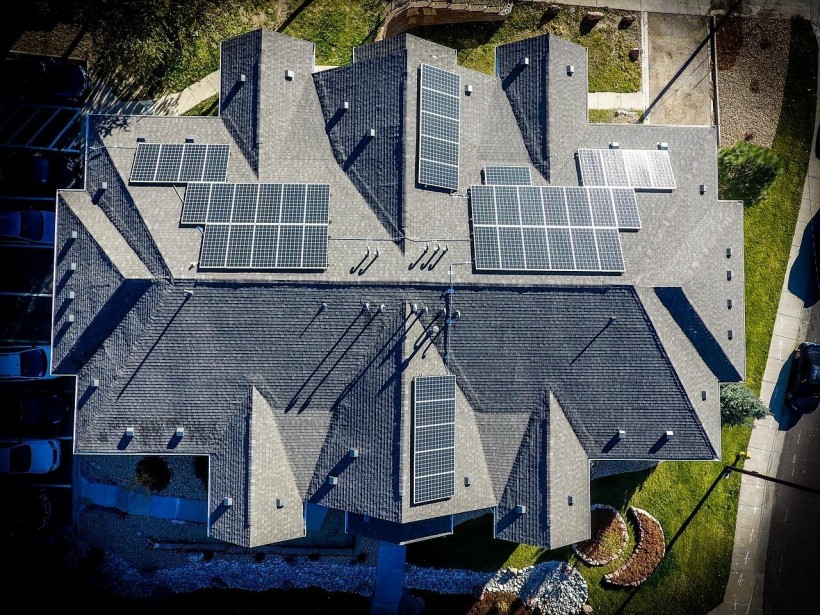PosiGen was founded in 2011 by Thomas Neyhart. In the aftermath of Hurricane Katrina, many families wanted to rebuild their homes with efficient, green, and renewable solar energy. However, in most cases, only higher-income households were able to afford the solar options available at the time. Few - if any - cost-effective solutions were available to low-to-middle-income families, many of whom bore the brunt of Katrina's losses and were disproportionately affected by the disaster. PosiGen CEO, Thomas Neyhart realized that with smart, community-focused solutions tailored to the needs of specific client bases, he could deliver safe, clean, cost-effective, and renewable solar energy to the families who needed it most. He could also take things a step further by providing those families with access to credit lines, job opportunities, training, and coaching to help them gain financial independence.
PosiGen's Community Benefits
These initiatives have compounded the benefits that accrue to PosiGen's customers. Over 65% of the company's employees are women or people of color, and the savings that the company's clients enjoy via access to cost-effective energy and efficiency solutions are recirculated back to the local community. This creates a virtuous cycle of investment, savings, and career progression for all involved - not to mention improved revenue and margins for the company.
Thomas Neyhart's Policy Campaigning and Business Strategy
This blueprint of investing in scalable energy and efficiency solutions and investing in the communities that PosiGen serves is at the heart of CEO Thomas Neyhart's multi-faceted approach to sustainability.
For example, in 2019, multiple votes by the Louisiana Public Service Commission doubled down on anti-solar policies to boost the profits of monopoly utility companies. After the passage of these new rules, Louisiana dropped from 31st on the rooftop solar policy list to 47th. PosiGen actively campaigns for energy independence, clean energy, and lower bills. The company has worked tirelessly to bring solar to as many families in Louisiana - where the firm is headquartered - as possible.
These initiatives do not occur in a vacuum, and PosiGen CEO Thomas Neyhart uses an innovative new way to determine eligibility for solar services that is drastically different from the industry norm, as discussed below.
Thomas Neyhart Redesigned Traditional Client Onboarding and Education
Most providers look at income, credit ratings, and client savings when determining eligibility for the installation of solar and energy-saving equipment. If you do not meet these requirements, you will never be made an offer.
PosiGen, on the other hand, is forward-looking. Your potential savings mean more to the company than your credit score or your savings balance. That is why PosiGen's engineers will only look at your historical energy consumption, energy spending, and whether your rooftop can generate enough solar power for your home to determine eligibility. As the PosiGen CEO, Thomas Neyhart frequently states PosiGen does not need to make every dollar, but the company must strive to save its customers every dollar. Solar installations are only made if they can save the client money.
In addition to a customer-focused business strategy, PosiGen CEO Thomas Neyhart has also built a robust client education program and smart, simple pre-installation checklists. By educating users about the benefits of solar energy and assuaging any concerns they may have about making the switch, PosiGen has been exceptionally successful at creating advocates and endorsers of its customers who help to bring more and more people into the solar fold. In this way, PosiGen has customer acquisition costs that are as low as one-fifth of the industry standard. These savings can then be passed on to customers and their communities.
Another interesting aspect about Thomas Neyhart's client education and onboarding program is that it helps to dispel any misconceptions that customers may have about solar.
For instance, on a traditional utility grid, homes only consume electricity. Kilowatt meters that measure the amount of electricity that the home consumes in kilowatt-hours are used to determine the home's monthly bill. To calculate the bill, the number of kilowatts the home uses is multiplied by the price per kilowatt. Additional charges such as service, delivery, or maintenance charges may be added. Too many people are unaware of how their bills are calculated, although it is clear that in the traditional setup, electrical consumption is one-directional.
Solar homes, on the other hand, consume and produce electricity. Net metering is used to calculate the home's total number of kilowatts used, from which kilowatts the home produced by solar is subtracted. Not everyone understands how this works, even though the result is a credit for the amount of electricity that the home produced independently - a great way to convince people to move to solar.
The electricity generated by the home will vary from month to month. In months in which the home's energy needs are satisfied by solar, excess supply can be sent to the grid for other users to use. Not only will the home's utility bill be lowered by the value of electricity the home-produced itself, but for the excess energy that is sold on the grid, the homeowner will receive an equivalent amount of free electricity for use in the future.
The PosiGen CEO and the Benefits of Efficiency Investments
A report by the Energy Information Administration (EIA) found that investments in energy efficiency saw a higher percentage of growth than any other industry. Furthermore, research shows that there are strong returns on investment in energy efficiency. According to one report, recent investments in energy efficiency in the utility sector resulted in a 7.3% increase in electricity savings - enough to power almost 2.5 million US homes every year.
PosiGen CEO Thomas Neyhart realized early on that the future of energy lies in solar. He also realized that we can share the cumulative benefits of growth and economic development with smart, customer-focused products. What we need are strategic investments in target markets and commitments to diversity, equity, and inclusion, as these are the initiatives that will more than proportionately help the most at-risk populations while simultaneously helping your company grow.
© 2024 NatureWorldNews.com All rights reserved. Do not reproduce without permission.
* This is a contributed article and this content does not necessarily represent the views of natureworldnews.com





![Retention Ponds, Wetlands Can Decrease Particle Pollution in Aquatic Environment by 75% [Study]](https://1471793142.rsc.cdn77.org/data/thumbs/full/70200/280/157/50/40/retention-ponds-wetlands-can-decrease-particle-pollution-in-aquatic-environment-by-75-study.jpg)
